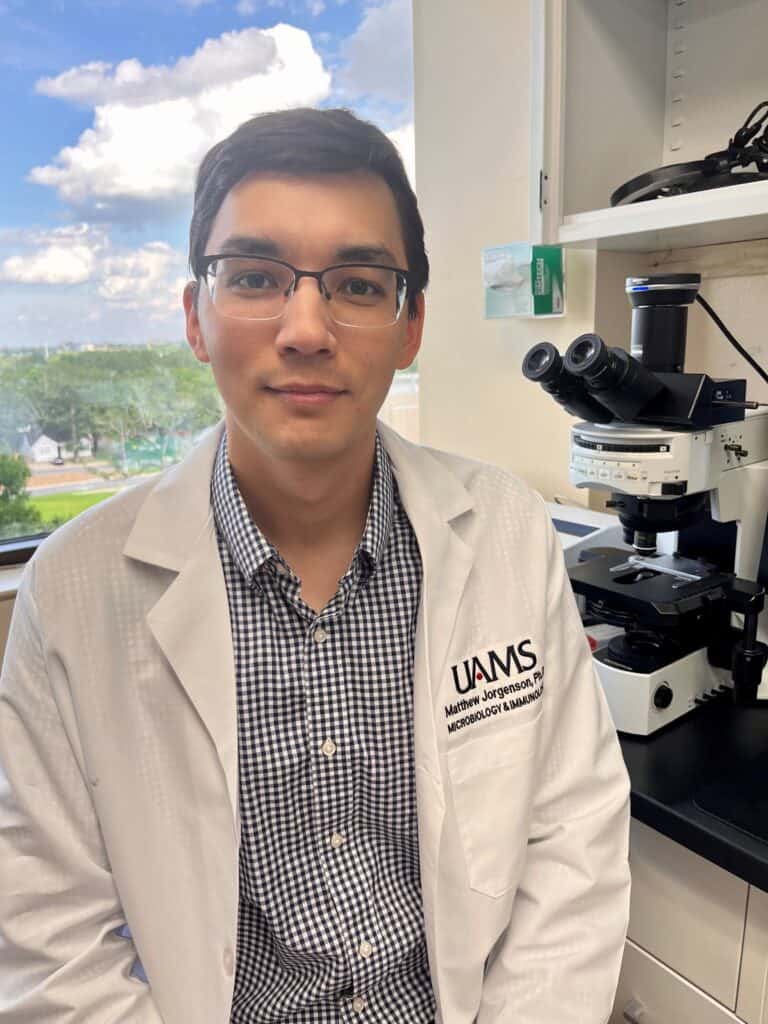
Bacterial pathogens are coated by a wide array of glycan layers that protect against antimicrobials, immune systems, and environmental hazards. Though formidable, these protective layers harbor a critical weakness: most are assembled on a vulnerable lipid carrier known as undecaprenyl phosphate (Und-P). While most studies have focused on the consequences of decreasing Und-P levels, very little effort has been applied to understand what effects occur when Und-P levels increase. Dr. Matthew Jorgenson’s grant, known as an R35 Maximizing Investigators’ Research Award, will be used to understand, in greater depth, how increasing Und-P levels affects bacterial glycan assembly. Since bacterial glycans are used in therapeutics like vaccines, results from these studies may inform new strategies to defeat bacterial pathogens. Another overlooked aspect of Und-P centers around its distribution. In most cells, Und-P is utilized by multiple pathways simultaneously. However, very little is known about the mechanisms that distribute Und-P to competing pathways. Since Und-P homologs are found throughout all domains of life, knowing how cells distribute Und-P should inform what happens in homologous systems, where disrupting distribution of Und-P homologues is at the root of several rare genetic disorders in humans, a subject of no little consequence.
Grant title: Manipulating undecaprenyl phosphate levels to decipher mechanisms of competing cell envelope assembly pathways in Escherichia coli
Total costs: $1,863,512
Award number: R35 GM154672
Funding period: 6/10/2024-4/30/2029
